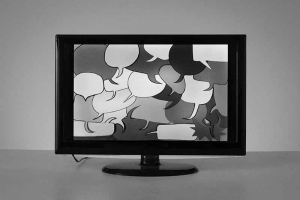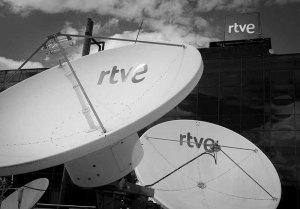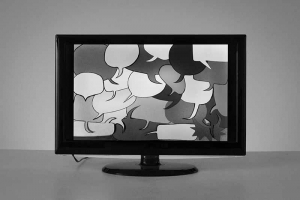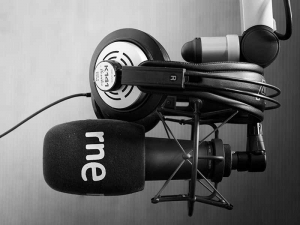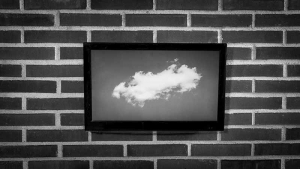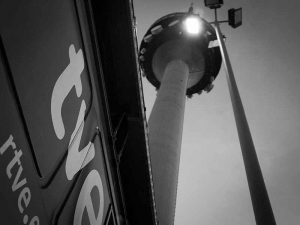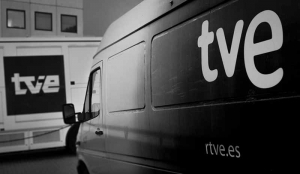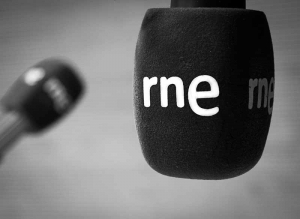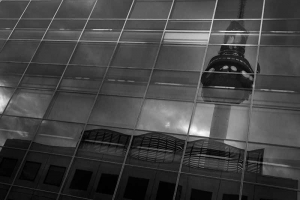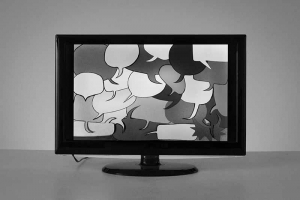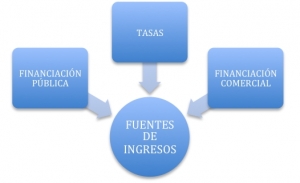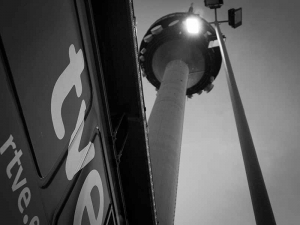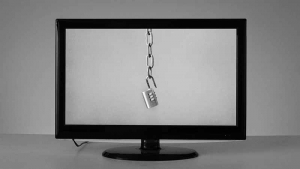El 10 de septiembre, Günther H. Oettinger (comisionado para la Economía Digital y Sociedad) intervino en la 24 Conferencia de Radiodifusores públicos. El Comisario afirmó que los radiodifusores del sector público (PSBs) juegan un papel fundamental y único, tanto desde el punto de vista social como económico. En Europa, son un vehículo para afirmar nuestros valores y el fortalecimiento de nuestra diversidad cultural.
El servicio público audiovisual se dirige a todos los sectores de la población y ofrece a todos el acceso a los programas de radiodifusión; se centra en contenidos de calidad ya sea información, contenidos educativos o de entretenimiento e invierte en la cobertura de noticias regionales y locales. Todo esto contribuye a fomentar el pluralismo a través de todo el sistema de medios de comunicación.
En pocas palabras, los PSBs tienen como audiencias a ciudadanos, no a consumidores.
Creo firmemente que la convergencia entre lo digital y los medios de comunicación es, ante todo, una excelente oportunidad para PSB, ya que la digitalización multiplica las oportunidades del servicio público RSP para perseguir su misión.
El discurso íntegro puede leerse a continuación:
Ladies and Gentlemen,
It is a pleasure for me to be here with you at the 24th Public Broadcasters International Conference.
I would like to thank ARD and Bayerischer Rundfunk for bringing together such a wealth of interested parties and offering me the opportunity to address the issue of the role of media and Public Service Broadcasting (PSB) in building the digital society.
Public sector broadcasters (PSBs) play a fundamental and unique social and economic role. In Europe, they are a vehicle to affirming our values, preserving our economy and strengthening our cultural diversity.
PSBs target all sections of the population and offer everyone access to broadcasting programs; they focus on quality content be it information, educational content or entertainment and they invest in the coverage of regional and local news. All this contributes to driving up pluralism across the entire media system.
To say it in just few words, for PSBs audiences are citizens, not just consumers.
This is not unique to Europe but occurs globally.
As UNESCO puts it, in many emerging democratic countries in Africa, Latin America, Asia and the Middle East, PSB is seen as essential for the development of a strong and participatory democracy.
In some countries, PSBs are also key for the promotion of minority or less developed languages.
Today, I would like to focus today on the following issues:
How the global audiovisual market is evolving and what this means for the European audiovisual sector .
The key values of the European audiovisual model, in particular as regards PSB, as well as the main challenges facing PSB.
The unique role of PSB, and how I believe their mission should continue being successfully pursued in an ever changing society and economy. Let me start by highlighting the main traits of market evolution and what this means for PSB.
The most pervasive of such developments, as the name of this session recalls, is digitalisation.
Nobody any longer makes the difference between the "digital" life and economy from the "mainstream" economy and life.
We describe the world we live in as "Always On" – a world where we are constantly connected across various devices. Every device, anywhere, is now a TV.
Accordingly, the expectations of the audiences become digital – they want to access content in innovative, personalised and interactive ways.
Convergence brought an abundance and diversity of content, new modes of content production, distribution and access across platforms and devices, and consequently changed patterns of consumer and business behaviour.
More specifically, the following main trends can be observed:
Globally, consumer internet video traffic will be 80% of all consumer Internet traffic in 2019, up from 64% in 2014.
The sale of Internet-connected TV sets worldwide is expected to 173 million items in 2016 as compared to 52 million items in 2011.
Viewing habits are changing.
A very recent report highlighted that in major markets across the world 35% of all TV and video viewing is now watched on-demand. Also, 61% of people globally watch content on their smartphones.
Online advertising is growing at a fast pace. Global expenditure on mobile advertising will top $100 billion worldwide in 2016, which will make 51% of the digital market as a whole.
Content offer is also changing. In Europe, we have observed that European TV channels (including from PSB) are increasingly internationally oriented: in 2013, 1 989 TV channels established in the EU targeted other Member States and third countries (+ 24,6% vs. 2012) and represented 42% of the total national and international channels established in the EU (19,3% in 2012) .
By its own nature, digitalisation also comes in pair with globalisation and scale. These days, we often hear that the Internet or the cyberspace has no borders. This has also an impact on audiovisual media.
What is the impact of these developments on PSBs?
Some fear that these developments pose a challenge for PSB, as new market entrants acquire slices of the audiovisual media market pie. I am optimistic. PSB has been there for decades and has already experienced, and successfully adapted and even embraced new market developments.
I strongly believe that the convergence between digital and the media is first and foremost a terrific opportunity for PSB.
The more devices and services consumers have available, the more the content they will consumed. The figures I mentioned earlier how that the audiovisual media market pie is today a larger one than it used to be.
Technology now allows PSB to reach viewers – or rather, citizens - on a pan-European or global scale. Viewers can enjoy PSB programmes in their living rooms and as they are on-the-go, across devices.
This does not have simply an economic dimension: Digitalisation multiplies the opportunities for PSBs to pursue their mission.
It has a strong impact on the cultural and political life of each and every citizen, who has new opportunities for cultural expression and democratic interaction – what we can call as "participatory democracy".
PSB have proven us that they have well understood this.
They are responding to the digital revolution notably by developing compelling offers on online platforms.
Despite the fact that consumers can now compile their own information and entertainment menu from a very diverse and appealing set of offerings, PSB remains very strong.
For instance, as shown in data published in the summer by the British regulator OFCOM, despite the continued growth in the number of channels available, over half of all television viewing in the UK is still to the five main public service television channels.
I would also like to bring up the example of the Netherlands, where the online portal of a PSB has more users than Netflix – which in that country is also particularly strong.
In Japan, for example, NHK (the national public broadcasting organisation) registered in 2014 an annual revenue of more than $6bn, putting it close to the BBC.
In India, the public service broadcasters – Doordarshan and All India Radio – though not in a monopolistic position anymore, continue to play an important role in the country's media scenario.
Let me know move on to the European audiovisual model and its values. In Europe, we are proud of our so-called "dual" system –combining the presence of PSBs with commercial broadcasters.
This model allows delivering to the citizens an essential public service while maintaining an open market and opportunities for new entrants.
This dual" system model is permeated by key values.
These values, thanks to the solid and comprehensive regulatory framework that is in place, are conveyed by PSB, commercial broadcasters as well as more innovative services delivering audiovisual content, so-called on-demand audiovisual media services.
Please allow me to briefly illustrate these key values to you:
First and foremost, the protection of fundamental rights as also enshrined in the EU Charter. Freedom of expression and information and freedom and pluralism of the media are included there – and so are the protection of a person's private sphere and personal data.
Strong consumer protection, including for vulnerable viewers such as minors or persons with disabilities.
The promotion of cultural and linguistic diversity.
Access to information and universal service, in particular as regards information on events of high interest to the public and news programmes.
In times like this where new business models (crowd-funding, user generated content and citizen journalism, alliances between search engines and newspapers, etc.) have created many sources of information and news, some have raised issues around verification and traceability of news sources.
For many, PSBs are a way to ensure a high level of reliability.
The values of the EU audiovisual model bring direct benefits to the economy as well.
Notably, a free and pluralistic media environment is more appealing for investors, favors competition, and generates positive spill-overs across the whole economy, for example through the revenues coming from advertising. A free and pluralistic media environment ultimately reinforces the EU market and global trade, encouraging media companies to invest beyond borders.
In the specific case of PSBs, it is important to stress that when pursuing their mission they give at once a significant contribution to Europe's economy and to its cultural diversity.
According to estimations from the European Broadcasting Union, Europe's public service media organisations invest approximately EUR 20 billion in content and air a significant amount of domestic and European content.
Ladies and Gentlemen, PBS have played a unique role throughout history.
They have been a reference point for citizens, including in times of war, turmoil and political crises. This happens today as well. The external services of national PSB – such as the BBC World News – reach communities around the world.
Despite being well established and having pursued their mission for decades, PSB continue evolving and adapting, reinventing themselves to meet the challenges of new technology, competition and regulatory change.
This process of adaption comes with intense and sensitive debates revolving around a few issues:
Funding of PSB, which is subject to mixed models. Across EU Member States, PSB can receive money via public funds and/or licences fees paid by the citizens. Other models are in place elsewhere: for example, in the United States, funding is provided through mostly public donations but also through foundations and corporations, and individual donations.
There are heated debates around what is the best model and how should it evolve. Some even question why, in a world in which there is so much media choice, is there any longer a need for PSB funded by licence fees or taxation.
In Europe, there Protocol to the Amsterdam Treaty enshrines the freedom of Member States to design the mission and the architecture of their public service broadcasting systems while giving rules on how public money should be used to support media activities.
This is and remains our reference point in this domain.
The regulatory landscape.
As policy makers, in the European Commission we know well that a regulatory landscape striking the right balance between public interest and market needs is crucial in this domain.
In Europe, we are acting with no delays to make sure that the audiovisual media sector – including PSB - can pursue public interest objectives pursued efficiently and sustainably in the digital age.
Our Digital Single Market strategy will boost our economy by €415 billion per year and create hundreds of thousands of new jobs.
It will also enhance our international outlook.
Where does PSB have to benefit from the Digital Single Market strategy?
First of all, because we are looking into the existing regulatory framework for audiovisual media services in view of its modernisation. We are currently consulting the public – and you all are invited to contribute – on how the current rules on issues such as advertising, protection of minors, media freedom and pluralism, cultural diversity have delivered on our objectives and on if and how such rules should be enhanced in the future.
Given that protecting the public interest is also one of the main goals of the existing regulatory framework, we are also assessing whether specific rules should exist in order to ensure that audiences can easily find and access public interest content.
Secondly, because we will reform copyright including as regards overcome existing barriers to accessing content across borders. In doing so, we will refrain from imposing pan-European licences.
Thirdly, because we will review the rules applicable to copyright licensing in relation to distribution of TV programmes over satellite and cable networks. In this context, we are gathering the views of the public on what could be the impact of a possible extension of the existing law to broadcasting services provided over the Internet.
Fourthly, because we are kicking off a comprehensive assessment of the role that Internet platforms and intermediaries play in the economy. This also applies to the platforms offering audiovisual content over the Internet and will deliver more clarity as to the business models and their impact on the values that the EU strives to promote. I know that this debate is not only taking place in Europe.
Ladies and Gentlemen, throughout history PSB have played a unique role.
We need to work out together, at the global level, a future-oriented model of PSB, which is capable of matching an environment of technological and governance complexity with the needs of global citizenship.
I am confident that together we can make sure that PSB continue pursuing its mission in an ever changing economic and social climate.




